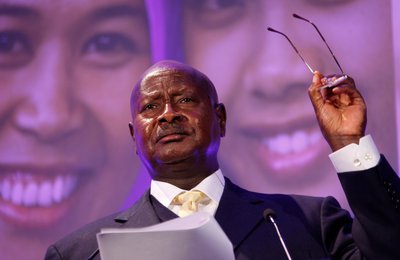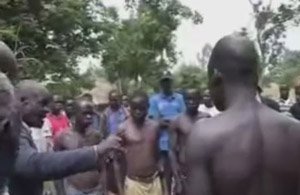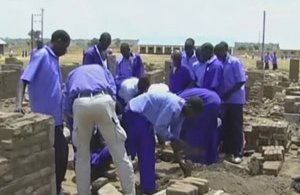In May the Ugandan army announced the capture of a senior Lord's Resistance Army (LRA) leader, Major General Caesar Acellam. He arrest has rekindled the old peace versus justice debate in Uganda. Should Acellam be given amnesty or subjected to war crimes prosecution before Uganda’s International Crimes Division (ICD)?
Some human rights groups have called upon the government to transfer Acellam - considered to be high ranking in the LRA - to the International Criminal Court (ICC). The Director of Public Prosecution announced that Acellam is being investigated for possible war crimes and crimes against humanity and erroneously stated that LRA leaders are not entitled to amnesty.
What has been missing in the discussion is how the arrest of Acellam could be a boost to peacebuilding and ending the LRA insurgency. Even though I haven’t taken a position on his fate, my view is that we must be sober when discussing pertinent questions about justice and conflict.
It’s not in dispute that senior LRA leaders are guilty of all sorts of war crimes, given the history and pattern of their insurgency. But so is the government. It was on this basis that an amnesty - demanded by victims of LRA atrocities - was discussed and enacted in 2000. It is the reason the Amnesty Act continues to operate even after several challenges. The LRA conflict has no purely military solutions and the line between victim and perpetrator is blurred even for senior commanders and government soldiers.
Positive image for the Ugandan Army
Questions arising from Acellam's arrest
The big questions now are how do we build on this positive image of the UPDF to rekindle confidence in the Amnesty Law? How do we use the capture or surrender of Acellam to encourage further defections by senior LRA commanders and the rank and file? Will Acellam be given amnesty or subjected to Kwoyelo-style prosecution in the name of justice? Shall we seize the opportunity to make the war winnable or shall we go for hunting each and every LRA commander to the last man standing?
My sense is that this arrest is a great opportunity. It should build on the renewal of the Amnesty Act. It should kick-start implementation of some conflict sensitive justice approaches like reparations and Mato Oput (the traditional Acholi justice mechanism). The government should compensate victims of LRA atrocities as it reintegrates Acellam and Kwoyelo back into society. Some forms of truth telling and documentation is also needed for Acellam to record his narrative of the conflict.
When asked by reporters whether he will apologise, Acellam responded that in his understanding of war, the word sorry is not much used. Shouldn't Acellam be given an opportunity to explain? Could he be meaning what the Americans calls collateral damage? Does this mean he is not remorseful and willing to renounce insurgency?












